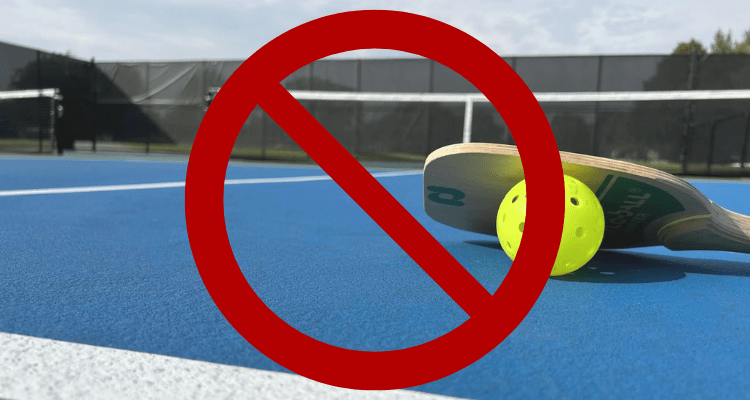In the Special Town Meeting on Monday night, Swampscott Town Meeting members rejected the proposal to authorize the town’s use of state grant funding for the construction of four pickleball courts at Phillips Park.
Article 4 Faces Narrow Rejection
Opponents of Article 4 rejected the proposal by a slim two-vote margin. This article sought approval for the town to use around $56,000 from the Parkland Acquisitions and Renovations grant for the $103,873 pickleball court construction project. This fell short of the necessary two-thirds majority required for the motion to pass.
The 106-57 vote, representing approximately a 65% majority in favor, came after a lengthy and spirited debate. Opponents of the warrant article voiced concerns about potential noise from pickleball courts and cited Phillips Park’s location on a flood plain.

“I’ve explored the route leading to Phillips Park. Throughout spring, it remains consistently wet—saturated. Preserving our wetlands is crucial. As a coastal community, it’s impractical to lay a solid surface over wetlands. There must be an alternative location in town at a higher elevation for the pickleball courts,” expressed Town Meeting member Jim Smith.
Support for Pickleball Courts
Smith, residing in proximity to Phillips Park, further mentioned that the park is situated near an assisted living facility. Smith claimed that the noise from the courts would be “highly annoying” to nearby residents.
Tonia Bandrowicz, the Chair of the Conservation Commission, addressed residents’ concerns about the potential flood vulnerability of the proposed courts. She clarified that the designated area for pickleball courts in Phillips Park, although in a flood zone, is not classified as a wetland. That specific area may not explicitly prohibit the town from constructing a platform.
Marzie Galazka, the Director of Community and Economic Development, highlighted pickleball courts as an introduction to “the fastest growing sport in the country” for Swampscott. She reassured residents that, if endorsed by the Town Meeting, the project’s design proposals would need approval from the Conservation Commission. Additionally, she mentioned that the work would not commence until July 1.

“I’d like to emphasize that we prioritize the utmost importance of constructing resilience and ensuring the safety of our infrastructure, along with providing secure facilities for our residents,” stated Galazka. “Rest assured, we commit to examining the latest best practices in design.”
The Town Meeting, lasting about two hours, ended with unanimous decisions: a $1 million ‘free cash’ transfer to ease residents’ 2024 tax burden and a bylaw regulating single-use plastics and Styrofoam for food establishments.



